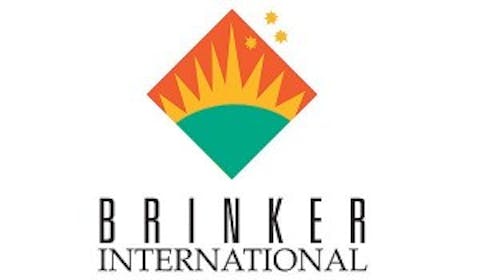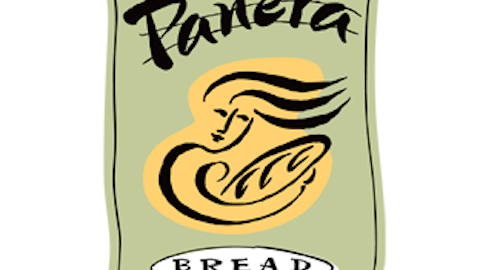I’ll admit that I didn’t fully understand this company’s potential either. It’s too easy to look at an established company and assume that their best days are behind them. However, in Brinker International, Inc. (NYSE:EAT)’s case, they can still produce earnings growth for years to come. The problem is, the market doesn’t seem to believe. Trust me, when everyone realizes that this company will continue to grow, today’s stock price will seem like a bargain.

The common complaint
The most common argument for not buying Brinker International, Inc. (NYSE:EAT) is the company’s Chili’s chain has reached its saturation point. With hundreds of locations in the United States, if the company were limited to domestic operations, I might agree with this theory. There is plenty of competition trying to steal sales from Brinker International, Inc. (NYSE:EAT) as well.
Well established companies like Darden Restaurants, Inc. (NYSE:DRI) are trying to turn their chains around, and would like to take sales from Brinker. Smaller and faster growing concepts like Buffalo Wild Wings (NASDAQ:BWLD) and Texas Roadhouse Inc (NASDAQ:TXRH) offer their own brand of customer-stealing concepts. Buffalo Wild Wings (NASDAQ:BWLD) hopes to lure customers in with cheap chicken wings, beer, and a whole bunch of televisions. Texas Roadhouse Inc (NASDAQ:TXRH) hopes to take customers from Brinker International, Inc. (NYSE:EAT) with a high-value mix of meals in a casual atmosphere. While these companies do represent competitive threats, Brinker has a trick up its sleeve.
A concern that isn’t, and where future growth will come from
While Darden Restaurants, Inc. (NYSE:DRI) is trying to turn negative same-store sales around at Olive Garden, Red Lobster, and Longhorn Steakhouse, Brinker mainly has to concentrate on Chili’s. Buffalo Wild Wings (NASDAQ:BWLD) and Texas Roadhouse Inc (NASDAQ:TXRH) will find most of their growth through new domestic locations over the next many years. By contrast, Brinker International, Inc. (NYSE:EAT) will get most of its growth from overseas.
A common concern about Brinker is the company’s lackluster revenue growth. However, investors who think small revenue growth is a major problem are missing the point. Brinker’s international franchisees are the key to future earnings growth. Using franchised restaurants doesn’t add much to the top line, but bottom-line growth can be robust. The great thing about franchised restaurants is, the corporate entity gets not only franchise fees up front, but also gets royalties on a continuing basis.
If you look at Brinker’s current quarter earnings, you’ll get an idea of the possibilities. The company reported revenue that was basically flat. However, EPS jumped 20% because franchise royalties and fees more than made up for a small decline in sales at the company-owned restaurants. Since Brinker International, Inc. (NYSE:EAT)’s overseas franchise locations saw 5.1% same-store sales growth, as the size of the company’s international locations grows, so will net income and cash flow.
What will they do with the cash?
If there is one thing that Brinker shareholders know, it’s that the company is focused on shareholder value. As the company becomes more profitable through international expansion, there are two likely places this extra cash will end up, share repurchases and dividends.
Shareholders in Darden Restaurants, Inc. (NYSE:DRI) are staring down the barrel of the opposite side of this coin. Darden Restaurants, Inc. (NYSE:DRI) is saddled with a heavy debt load, and poor performance. To make things worse, the company is issuing shares to help offset their cash flow issues. With shares up 0.46% in the last year, this mirrors a challenge being faced at Buffalo Wild Wings (NASDAQ:BWLD). This chain is issuing shares to help the company expand, and reward officers, but cash flow has been inconsistent or non-existent.
On the other side of the coin are Texas Roadhouse and Brinker. Each of these companies pays a yield of about 2.1%, and they are both committed to retiring shares. However, the level of share repurchases couldn’t be any different. Whereas Texas Roadhouse Inc (NASDAQ:TXRH) retired 0.35% of their shares in the last year, Brinker retired over 8% of their diluted share count.
Another difference between these two companies is their dividend payout ratios. If you look at each company’s core free cash flow (net income + depreciation – capital expenditures), you can see that Brinker is in a superior position to raise their dividend in the future. Texas Roadhouse Inc (NASDAQ:TXRH) used 55% of their free cash flow to pay dividends while Brinker only used about 36% of their free cash flow.
What should you do next?
Looking at the relative value of each of the aforementioned companies, it’s hard to argue with Brinker as a solid investment choice. Darden Restaurants, Inc. (NYSE:DRI) is struggling with negative same-store sales at all of its major chains. Buffalo Wild Wings is growing revenue, but on a quarter-to-quarter basis might deliver 20% EPS growth followed by a 10% EPS decline. When you add in the fact that Buffalo Wild Wings (NASDAQ:BWLD) has relatively little free cash flow, I have a hard time recommending the stock.
Texas Roadhouse Inc (NASDAQ:TXRH) could be a good value, but with shares trading for more than 20 times projected earnings, the company will have to beat estimates of a 13.67% growth rate to be a good deal. Investors who get the Brinker story, understand that new international restaurants will drive earnings. The company will likely put this extra cash to work retiring more shares and paying a higher dividend. If you are looking for growth and income, look no further than Brinker. Just because the market is missing this opportunity, doesn’t mean you should make the same mistake.
The article The Market Just Doesn’t Get This Stock originally appeared on Fool.com is written by Chad Henage.
Copyright © 1995 – 2013 The Motley Fool, LLC. All rights reserved. The Motley Fool has a disclosure policy.

